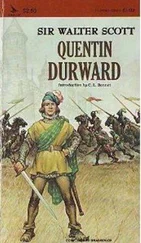Walter Scott - Letters on Demonology and Witchcraft
Здесь есть возможность читать онлайн «Walter Scott - Letters on Demonology and Witchcraft» весь текст электронной книги совершенно бесплатно (целиком полную версию без сокращений). В некоторых случаях можно слушать аудио, скачать через торрент в формате fb2 и присутствует краткое содержание. Жанр: История, на английском языке. Описание произведения, (предисловие) а так же отзывы посетителей доступны на портале библиотеки ЛибКат.
- Название:Letters on Demonology and Witchcraft
- Автор:
- Жанр:
- Год:неизвестен
- ISBN:нет данных
- Рейтинг книги:4 / 5. Голосов: 1
-
Избранное:Добавить в избранное
- Отзывы:
-
Ваша оценка:
- 80
- 1
- 2
- 3
- 4
- 5
Letters on Demonology and Witchcraft: краткое содержание, описание и аннотация
Предлагаем к чтению аннотацию, описание, краткое содержание или предисловие (зависит от того, что написал сам автор книги «Letters on Demonology and Witchcraft»). Если вы не нашли необходимую информацию о книге — напишите в комментариях, мы постараемся отыскать её.
Letters on Demonology and Witchcraft — читать онлайн бесплатно полную книгу (весь текст) целиком
Ниже представлен текст книги, разбитый по страницам. Система сохранения места последней прочитанной страницы, позволяет с удобством читать онлайн бесплатно книгу «Letters on Demonology and Witchcraft», без необходимости каждый раз заново искать на чём Вы остановились. Поставьте закладку, и сможете в любой момент перейти на страницу, на которой закончили чтение.
Интервал:
Закладка:
As these witches were the countrywomen of the weird sisters in Macbeth, the reader may be desirous to hear some of their spells, and of the poetry by which they were accompanied and enforced. They used to hash the flesh of an unchristened child, mixed with that of dogs and sheep, and place it in the house of those whom they devoted to destruction in body or goods, saying or singing—
"We put this intill this hame,
In our lord the Devil's name;
The first hands that handle thee,
Burn'd and scalded may they be!
We will destroy houses and hald,
With the sheep and nolt into the fauld;
And little sall come to the fore,
Of all the rest of the little store!"
Metamorphoses were, according to Isobel, very common among them, and the forms of crows, cats, hares, and other animals, were on such occasions assumed. In the hare shape Isobel herself had a bad adventure. She had been sent by the devil to Auldearne in that favourite disguise, with some message to her neighbours, but had the misfortune to meet Peter Papley of Killhill's servants going to labour, having his hounds with them. The hounds sprung on the disguised witch, "and I," says Isobel, "run a very long time, but being hard pressed, was forced to take to my own house, the door being open, and there took refuge behind a chest." But the hounds came in and took the other side of the chest, so that Isobel only escaped by getting into another house, and gaining time to say the disenchanting rhyme:—
"Hare, hare, God send thee care!
I am in a hare's likeness now;
But I shall be a woman even now—
Hare, hare, God send thee care!"
Such accidents, she said, were not uncommon, and the witches were sometimes bitten by the dogs, of which the marks remained after their restoration to human shape. But none had been killed on such occasions.
The ceremonial of the Sabbath meetings was very strict. The Foul Fiend was very rigid in exacting the most ceremonious attention from his votaries, and the title of Lord when addressed by them. Sometimes, however, the weird sisters, when whispering amongst themselves, irreverently spoke of their sovereign by the name of Black John; upon such occasions the Fiend rushed on them like a schoolmaster who surprises his pupils in delict, and beat and buffeted them without mercy or discretion, saying, "I ken weel eneugh what you are saying of me." Then might be seen the various tempers of those whom he commanded. Alexander Elder, in Earlseat, often fell under his lord's displeasure for neglect of duty, and, being weak and simple, could never defend himself save with tears, cries, and entreaties for mercy; but some of the women, according to Isobel Gowdie's confession, had more of the spirit which animated the old dame of Kellyburn Braes. Margaret Wilson, in Auldearne, would "defend herself finely," and make her hands save her head, after the old Scottish manner. Bessie Wilson could also speak very crustily with her tongue, and "belled the cat" with the devil stoutly. The others chiefly took refuge in crying "Pity! mercy!" and such like, while Satan kept beating them with wool cards and other sharp scourges, without attending to their entreaties or complaints. There were attendant devils and imps, who served the witches. They were usually distinguished by their liveries, which were sad-dun, grass-green, sea-green, and yellow. The witches were taught to call these imps by names, some of which might belong to humanity, while others had a diabolical sound. These were Robert the Jakis, Saunders the Red Reaver, Thomas the Feary, Swein, an old Scandinavian Duerg probably; the Roaring Lion, Thief of Hell, Wait-upon-Herself, MacKeeler, Robert the Rule, Hendrie Craig, and Rorie. These names, odd and uncouth enough, are better imagined at least than those which Hopkins contrived for the imps which he discovered—such as Pyewacket, Peck-in-the-Crown, Sack-and-Sugar, News, Vinegar-Tom, and Grizell Greedigut, the broad vulgarity of which epithets shows what a flat imagination he brought to support his impudent fictions.
The devil, who commanded the fair sisterhood, being fond of mimicking the forms of the Christian church, used to rebaptize the witches with their blood, and in his own great name. The proud-stomached Margaret Wilson, who scorned to take a blow unrepaid, even from Satan himself, was called Pickle-nearest-the-Wind; her compeer, Bessie Wilson, was Throw-the-Cornyard; Elspet Nishe's was Bessie Bald; Bessie Hay's nickname was Able-and-Stout; and Jane Mairten, the Maiden of the Covine, was called Ower-the-Dike-with-it.
Isobel took upon herself, and imputed to her sisters, as already mentioned, the death of sundry persons shot with elf-arrows, because they had omitted to bless themselves as the aerial flight of the hags swept past them. [66] [66] See p. 136.
She had herself the temerity to shoot at the Laird of Park as he was riding through a ford, but missed him through the influence of the running stream, perhaps, for which she thanks God in her confession; and adds, that at the time she received a great cuff from Bessie Hay for her awkwardness. They devoted the male children of this gentleman (of the well-known family of Gordon of Park, I presume) to wasting illness, by the following lines, placing at the same time in the fire figures composed of clay mixed with paste, to represent the object:—
"We put this water amongst this meal,
For long dwining [67] [67] Pining.
and ill heal;
We put it in into the fire,
To burn them up stook and stour. [68] [68] We should read perhaps, "limb and lire."
That they be burned with our will,
Like any stikkle [69] [69] Stubble.
in a kiln."
Such was the singular confession of Isobel Gowdie, made voluntarily, it would seem, and without compulsion of any kind, judicially authenticated by the subscription of the notary, clergymen, and gentlemen present; adhered to after their separate diets , as they are called, of examination, and containing no variety or contradiction in its details. Whatever might be her state of mind in other respects, she seems to have been perfectly conscious of the perilous consequence of her disclosures to her own person. "I do not deserve," says she, "to be seated here at ease and unharmed, but rather to be stretched on an iron rack: nor can my crimes be atoned for, were I to be drawn asunder by wild horses."
It only remains to suppose that this wretched creature was under the dominion of some peculiar species of lunacy, to which a full perusal of her confession might perhaps guide a medical person of judgment and experience. Her case is interesting, as throwing upon the rites and ceremonies of the Scottish witches a light which we seek in vain elsewhere.
Other unfortunate persons were betrayed to their own reproof by other means than the derangement of mind which seems to have operated on Isobel Gowdie. Some, as we have seen, endeavoured to escape from the charge of witchcraft by admitting an intercourse with the fairy people; an excuse which was never admitted as relevant. Others were subjected to cruel tortures, by which our ancestors thought the guilty might be brought to confession, but which far more frequently compelled the innocent to bear evidence against themselves. On this subject the celebrated Sir George Mackenzie, "that noble wit of Scotland," as he is termed by Dryden, has some most judicious reflections, which we shall endeavour to abstract as the result of the experience of one who, in his capacity of Lord Advocate, had often occasion to conduct witch-trials, and who, not doubting the existence of the crime, was of opinion that, on account of its very horror, it required the clearest and most strict probation.
Читать дальшеИнтервал:
Закладка:
Похожие книги на «Letters on Demonology and Witchcraft»
Представляем Вашему вниманию похожие книги на «Letters on Demonology and Witchcraft» списком для выбора. Мы отобрали схожую по названию и смыслу литературу в надежде предоставить читателям больше вариантов отыскать новые, интересные, ещё непрочитанные произведения.
Обсуждение, отзывы о книге «Letters on Demonology and Witchcraft» и просто собственные мнения читателей. Оставьте ваши комментарии, напишите, что Вы думаете о произведении, его смысле или главных героях. Укажите что конкретно понравилось, а что нет, и почему Вы так считаете.









